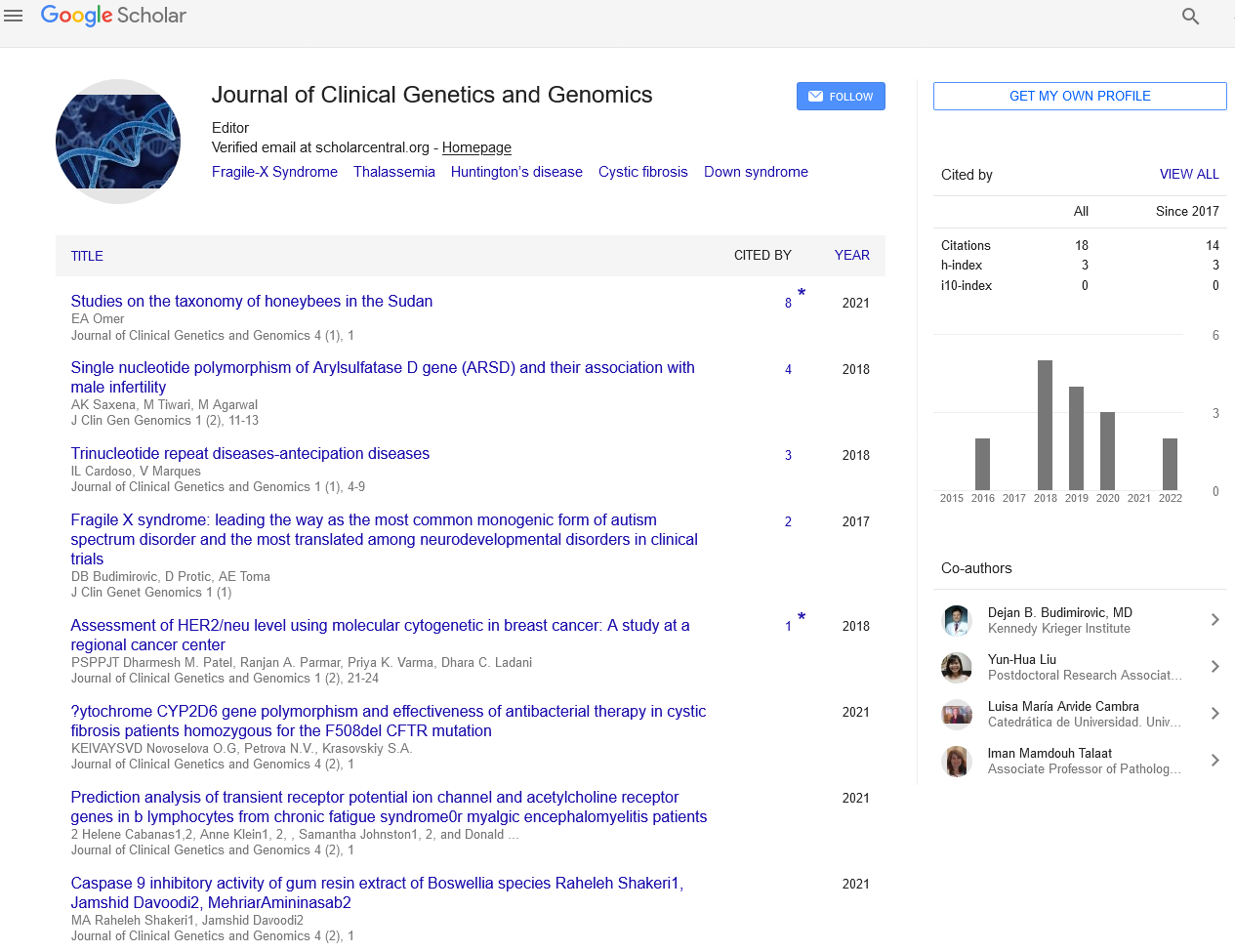Editorial note on mitochondrial diseases
Received: 01-Oct-2021 Accepted Date: Oct 15, 2021; Published: 22-Oct-2021
Citation: Paul A. Editorial note on mitochondrial diseases. J Clin Gen Genomics 2021;4(3):4.
This open-access article is distributed under the terms of the Creative Commons Attribution Non-Commercial License (CC BY-NC) (http://creativecommons.org/licenses/by-nc/4.0/), which permits reuse, distribution and reproduction of the article, provided that the original work is properly cited and the reuse is restricted to noncommercial purposes. For commercial reuse, contact reprints@pulsus.com
Description
Mitochondrial defects in neurodegenerative diseases include Parkinson's, Alzheimer's and Huntington's disease. Improved understanding of mtDNA inheritance and mutation penetrance patterns, and novel techniques for mtDNA modification offer significant prospects for more accurate genetic counselling and effective future therapies. Mitochondrial diseases are long-term, genetic, often inherited disorders that occur when mitochondria fail to produce enough energy for the body to function properly. One in 5,000 individuals has a genetic mitochondrial disease. Symptoms, diagnosis and treatment are discussed.In four members of a family, a diverse combination of developmental delay, retinitis pigmentosa, dementia, seizures, ataxia, proximal neurogenic muscular weakness, and sensory neuropathy occurred. There was no evidence of mitochondrial myopathy histochemically. Two populations of mitochondrial DNA were found in the blood and muscle of the patients, one of which carried a previously unknown restriction site for AvaI. A point mutation at nucleotide 8993 in subunit 6 of mitochondrial H(+)-ATPase caused an amino acid change from a highly conserved leucine to arginine, according to sequence analysis. There was a link between the severity of the patients' symptoms and the amount of mutant mitochondrial DNA in their blood; this was only found in trace amounts in the blood of healthy relatives from the same maternal line.
Mitochondria are double-membrane-bound organelles found in all nucleated eukaryotic cells and are responsible for cellular energy synthesis in the form of ATP. Mitochondrial function is governed by two genomes: the 16.6-kb mitochondrial genome, which contains just 37 genes, and the nuclear genome, which encodes the mitoproteome's remaining 1300 proteins. Mitochondrial dysfunction can be caused by mutations in mitochondrial DNA or mitochondrial genes in the nucleus, and it can manifest in childhood or adulthood, with symptoms affecting a single organ or tissue or involving multiple organs and systems. For the vast majority of mitochondrial disease patients, there is no cure, hence a genetic diagnosis is essential for genetic counseling and calculating recurrence risk, as well as affecting the therapeutic management of afflicted patients. The discovery of new disease genes and the detection of diseases are both aided by nextgeneration sequencing technologies.
The mitochondrial respiratory chain, the most essential cellular energy process, is disrupted, resulting in a complex and variable collection of multisystem illnesses known as mitochondrial disease. Because the brain, nerves, and muscles are frequently involved in the same patient, neurologists are at the forefront of the fascinating and difficult process of identifying and caring for these patients. Mutations in mitochondrial or nuclear DNA can cause mitochondrial illnesses, which are among the most common hereditary neurological disorders. Over the last decade, significant progress has been made in understanding the genetic basis of these illnesses, with considerable implications for the general neurologist in terms of patient diagnosis, investigation, and interdisciplinary care.





